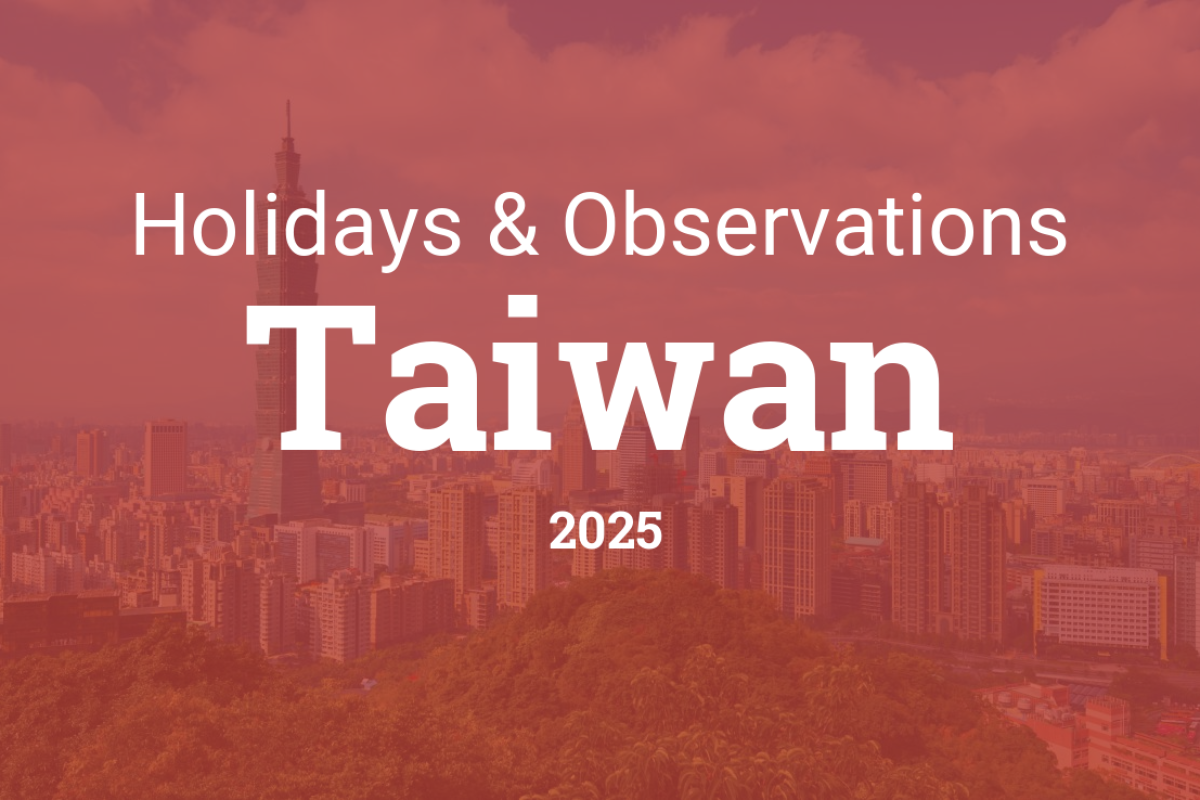Taiwan’s public holidays in 2025 will reflect its vibrant cultural heritage, a mix of traditional Chinese observances, national events, and modern holidays. These dates are significant for businesses planning operations, managing employee leave, and ensuring compliance with Taiwanese labor laws.
Here’s a breakdown of the key public holidays in Taiwan for 2025, offering businesses crucial insights into scheduling and workforce management.
Key Public Holidays in Taiwan for 2025
Taiwan celebrates a mix of national holidays and traditional festivals that hold cultural significance. Awareness of these dates is essential for businesses to effectively manage operations and employee leave.
| Date | Holiday | Description |
|---|---|---|
| January 1 | New Year’s Day | Marks the start of the year with national events and family gatherings. |
| January 28 | Chinese New Year’s Eve | A festive occasion marking the eve of Chinese New Year, widely celebrated with family reunions, feasts, and various customs. |
| January 29-31 | Chinese New Year | One of the most significant holidays, this period celebrates the arrival of the lunar new year with various cultural rituals, including the giving of red envelopes. |
| February 28 | Peace Memorial Day | Commemorates the victims of the February 28 Incident of 1947, with national remembrance events and ceremonies. |
| April 4 | Children’s Day | A holiday focused on children’s rights and education, often celebrated with family-oriented activities. |
| April 4 | Tomb Sweeping Day | A day for families to honor their ancestors by visiting and cleaning their graves. |
| May 5 | Dragon Boat Festival | Celebrated with dragon boat races and the consumption of zongzi (sticky rice dumplings), commemorating the poet Qu Yuan. |
| October 6 | Mid-Autumn Festival | Observed on the 15th day of the 8th lunar month, this holiday is centered around moon watching, eating mooncakes, and family gatherings. |
| October 10 | National Day | Known as Double Ten Day, it commemorates the founding of the Republic of China with parades, fireworks, and other national celebrations. |
Additional Observances in Taiwan
Apart from the official holidays, Taiwan also celebrates a few cultural observances that may influence work schedules, even though they are not official public holidays.
| Date | Observance | Description |
|---|---|---|
| February 14 | Valentine’s Day | Celebrated by couples exchanging gifts and affection. |
| March 19 | St. Joseph’s Day | While not widely celebrated across Taiwan, it’s important for those of Catholic faith or in specific regions. |
Employer Considerations for Managing Public Holidays in Taiwan
National vs. Cultural Observances
Although some observances aren’t official public holidays, understanding cultural expectations around these dates can enhance employee morale and strengthen cultural ties within the workplace.
Managing Public Holidays with EOR/PEO Services
For international businesses operating in Taiwan, partnering with an Employer of Record (EOR) or Professional Employer Organization (PEO) simplifies holiday management by:
- Ensuring Compliance: EOR/PEO services ensure businesses adhere to Taiwanese labor laws, ensuring employees receive holiday pay and correct leave.
- Payroll Adjustments: Managing payroll adjustments for holiday overtime or substitute leave is easier through these services.
- Efficient Leave Tracking: EOR/PEO services help businesses track holiday leave accurately and process employee time off effectively.
Holiday Pay and Compliance in Taiwan
Taiwanese labor law stipulates:
- Paid Leave: Employees are entitled to paid leave on public holidays, and those who work on these holidays generally receive additional pay.
- Substitute Holidays: If a holiday falls on a weekend, businesses may offer substitute leave days, depending on the employment contract.
Productivity and Holiday Planning
To minimize disruption during the holiday season, businesses can take the following steps:
- Advance Communication: Sharing holiday schedules early allows employees to plan leave effectively.
- Flexible Work Arrangements: Offering flexible working hours or remote work can help accommodate holiday needs while maintaining productivity.
- Project Adjustments: Scheduling projects around public holidays ensures deadlines are met without delays.
Final Thoughts
Understanding Taiwan’s public holiday calendar for 2025 provides businesses with valuable insights for workforce planning. By recognizing both official and cultural holidays, companies can effectively manage operations, ensure compliance, and support a positive work environment for employees.
GlobainePEO – Your Trusted Partner
At GlobainePEO, we help employers navigate the complexities of managing public holidays in Taiwan. From ensuring compliance with provincial laws to managing holiday schedules, we provide the support your business needs to thrive. Let us handle your workforce management while you focus on growing your business.

